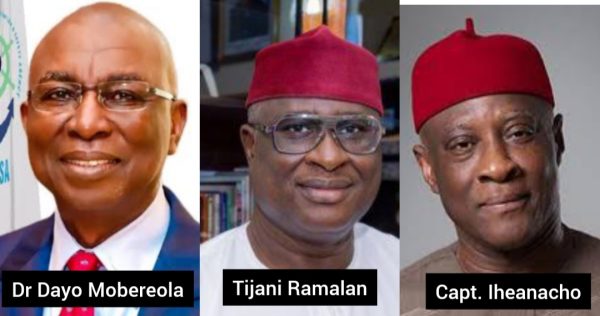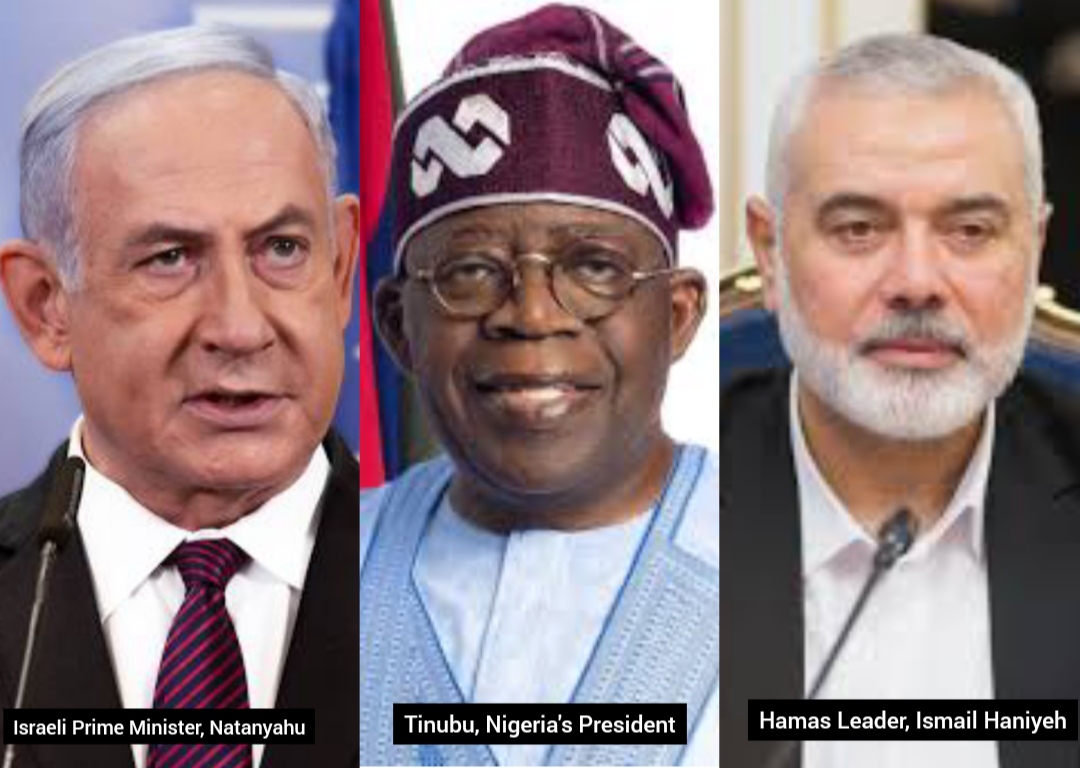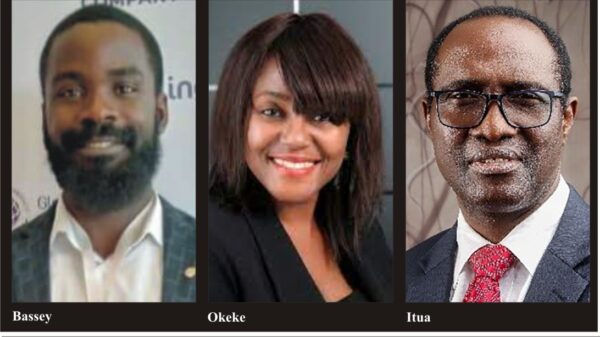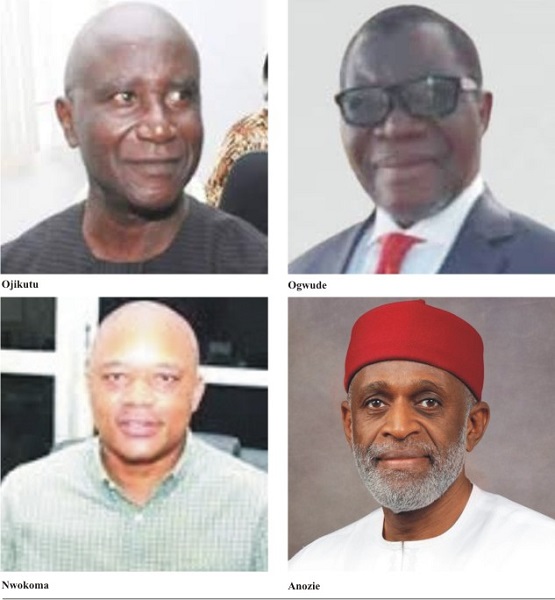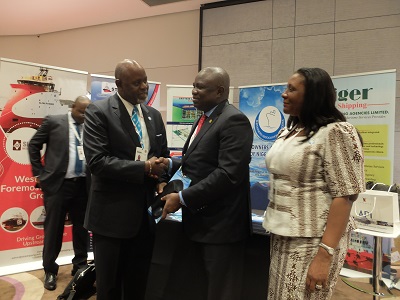Maritime Stakeholders’ Meeting: NIMASA’s Value Proposition and People’s Expectations
Within the maritime industry, it is only with the Nigerian Maritime Administration and Safety Agency (NIMASA) that the culture of a reception for a new chief executive officer(CEO) has been entrenched. However, as prized as this corporate tradition is, it has not been scientifically or superficially evaluated to ascertain its relevance in the short and long term to the agency or industry.
Different categories of maritime stakeholders, except the media, as always, converged penultimate Thursday, May 9,2024 in Eko Hotels, Victoria Island, Lagos to meet the new director general of NIMASA, Dr. Dayo Mobereola who assumed duty on March 27,2024 after his appointment by President Bola Tinubu on March 11,2024.
It was a night punctuated by expression of workable and unworkable pieces of advice as well as colours of wishes from stakeholders who expected a strategy document or road map with timelines and deliverables for a NIMASA in a new port and economic order. They were not disappointed either, they got promissory notes and assurances not insured, as always.
Many left feeling nothing has changed but prayed it does not get worse especially against the background of the revenue-centrism of Tinubu’s government which makes 50 per cent revenue generation deduction from the source mandatory for all agencies, thereby making the system development-unfriendly and crippling.
A participant at the interactive session quipped a note of irony on this culture of the new DGs meeting stakeholders, on the sideline of the occasion in a realistic anecdote. “The irony of this meeting is that we have been gathered today to meet a man who will tomorrow alienate and shut his doors against us tomorrow”. This is instructive as it explains the running relationship and communication gap that exist between NIMASA DGs and the public.
The question then is: What is the cost of this ironic meeting in relation to its estimated values to the industry? It is a corporate communications function that calls for a strategy rejig otherwise it remains a fruitless exercise and a financial drain pipe, MMS Plus observes.
Dr. Mobereola said nothing new at the stakeholders’ meeting from his speech the day he assumed office at the new NIMASA headquarters’ office in Victoria Island. In his maiden address, he had said NIMASA under him will build a purpose-driven organization, prioritize effective communication at all levels to enhance innovation, collaboration, and synergy.
He added the agency would prioritize safety, security, efficiency and environmental sustainability, among others. “We must strive to foster innovation and excellence in everything we do. The maritime industry is constantly evolving, driven by technological advancement, changing market dynamics and evolving regulatory frameworks.”
However, at the interactive session with the maritime stakeholders, Dr Mobereola assured stakeholders in the Nigerian maritime sector of inclusivity, towards the development of the sector.
According to him, “It is important that we develop clear objectives, goals, and strategies to advance the industry and align with the vision of the President of the Federal Republic of Nigeria and the Minister of Marine and Blue Economy. While the Agency will continue to play its part in serving the industry, it is important that we all collaborate to achieve a sustainable maritime sector, as all efforts should be inclusive and collective.”
He reassured shipowners that the Agency is committed to expediting the automation of the ship registry, a move that will significantly boost shipping development in Nigeria by enhancing efficiency and streamlining processes.
Captain Emmanuel Iheanacho, a former Nigerian Minister of Interior and chairman of the occasion, earlier had expressed the industry’s delight at the appointment of Mobereola, whom he described as a transport professional. He noted that Mobereola’s expertise will be invaluable in driving the administration and development of the Nigerian maritime industry.
“We expect the DG to be fully aware of the impact of technological developments in the Marine and Blue Economy industry, to guide in the formulation of policies to be developed. We look forward to working together with you to address the challenges ahead and to seize the opportunities that lie before us”, Iheanacho said.
In his presentation titled; Marine and Blue Economy: Navigating to the Promised Land, Dr. Emeka Akabogu, a maritime lawyer, proposed various reforms including policy and agenda verification, enhanced data and technology utilization, minimum industry standards, deliberate recruitment of professionals, empowerment protocols, development of standard shipping development courses, and accountability measures for NIMASA and the industry as a whole. He emphasized the need for routine meetings based on clear identifiable milestones to drive accountability and progress for the sector.
Princess Vicky Haastrup, the Chairman of the Seaport Terminal Operators Association of Nigeria (STOAN), emphasized the critical importance of dockworkers in the industry. “Where there are no dockworkers, there are no ships”, she said. Therefore, the training of dockworkers is very critical.”
Comrade Adewale Adeyanju, the President General of the Nigerian Maritime Workers Union (MWUN), who supported Haastrup’s position, emphasized the importance of continually training dockworkers and ensuring a decent work agenda, in line with the Maritime Labour Convention (MLC) 2006.
Alhaji Aminu Umar, who spoke on behalf of the ship owners in Nigeria, emphasized the need for further discussions and interactions regarding the International advancements in the maritime industry. He urged the Director-General to consider the independence of the Ship Registry as observed in other maritime countries.
The various women’s associations in the industry; WISTA, WIMOWCA, WILAT, who were represented by Mrs. Tosan Emore-Edodo advocated for increased participation of women in the industry and called for support in promoting advocacy efforts.
Past Directors General of NIMASA who attended the event include: Dr. Ade Dosunmu, Arc. Ferdinand Agu, Barr. Temisan Omatseye; as well as former Board Chairman of NIMASA, Mr. Tijjani Ramalan, all pledged their support for the current administration.
The Flag Officer Commanding (FOC) Western Naval Command, Rear Admiral Mustapha Hassan, was also present at the event, which had representation from the Nigerian Maritime Law Association (NMLA), Association of Master Mariners, Ship Building and Ship Repair Association, among others.
Perhaps, the launch of the Reviewed Minimum Wage Document for Seafarers at the occasion was one item that gave semblance of credence to the event.
NIMASA launched the reviewed minimum wage document for Nigerian Seafarers, developed in line with the provisions of the Maritime Labour Convention MLC 2006.
The document, which is for 2023-2025, is a product of a Collective Bargaining Agreement that involved employers of labour in the maritime sector, the leadership of the Maritime Workers Union of Nigeria, MWUN, NIMASA and other stakeholders in the industry.
According to NIMASA director general, while launching the document, “Today, we gather to celebrate a significant achievement in our collective efforts to enhance the seafaring industry. I am honoured to present the reviewed minimum standard for the seafaring industry; a landmark document that establishes the benchmark for fair and safe working conditions, decent living wages, and social protection for our seafarers.”
Dr. Mobereola also emphasized the need for collaboration and swift action in finalizing the Collective Bargaining Agreement (CBA) among Ship Owners, Nigerian Trawlers Operators, Nigerian Merchant Navy Officers and Water Transport Senior Staff Association (NMNO/WTSSA), and Maritime Workers Union of Nigeria (MWUN) on the renewed minimum standards for the Nigerian seafarers, to prevent payment backlogs and ensure timely compensation for employees.
In his words, “The revised standard provides comprehensive framework outlining the terms and conditions of employment for maritime workers, including wages, working hours, health and safety regulations, and other benefits. This reflects the collective expertise and input of stakeholders and our shared commitment to continuous improvement. This effort will contribute to sustaining an equitable and prosperous maritime labor industry”.
The Chairman of the National Seafarers Welfare Board, Alhaji Tijani Ramalan who launched the document, emphasized the need to adhere to the provisions of the Maritime Labour Convention (MLC) 2006, stating that it will not only foster industrial harmony, but also guarantee better working conditions for Nigerian Seafarers.


